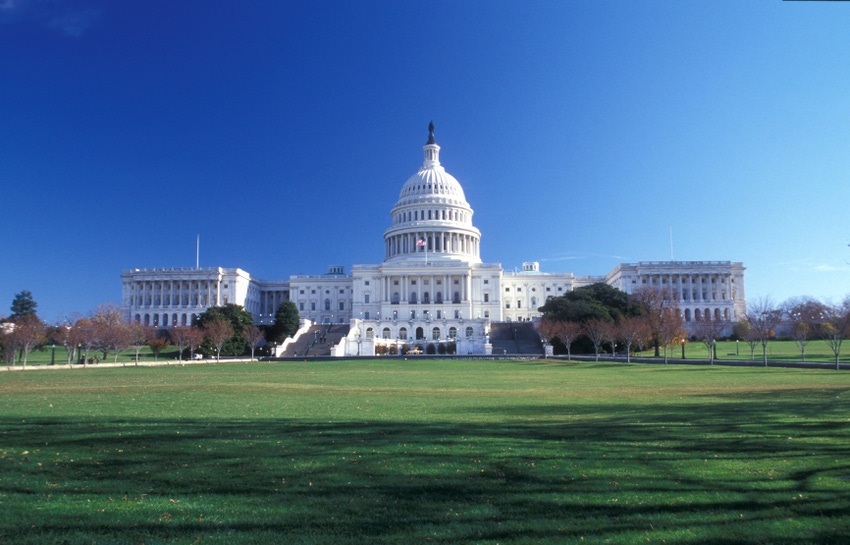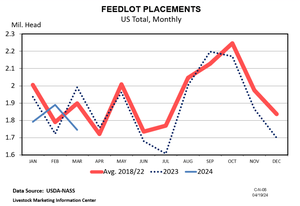September 3, 2015

Every serious agricultural group has been putting a lot of effort into stopping or reforming the final Waters of the U.S. (WOTUS) rule issued by EPA. When a federal district judge in North Dakota issued a preliminary injunction last Friday, agriculture thought it had won a battle in the larger war.
And we did, sort of. It is curious that EPA says the injunction only pertains to the 13 states included in that particular suit and that the rule will go into effect elsewhere. Typically, when a preliminary injunction is issued on a regulation, an agency stops implementation everywhere until the injunction is resolved. More than 30 states have already filed court challenges, so it is not an isolated case, or only of concern to the 13 states involved in the litigation before the North Dakota federal district court that issued the injunction.
There has been a lot of concern not only about the rule itself, but also in the process leading up to its implementation. That is not a surprise to many who have dealt with EPA in the past, as it is an agency that seemingly has no desire for input. The 400 meetings it conducted after issuing the proposed rule had nothing to do with gathering input, but rather to explain why EPA was going to do what it had already decided to do.
More than 1 million comments were submitted with more than 60% being what they classify as “unique opposed” to the rule. Amazingly, 32 individual states opposed the rule, wanting it either withdrawn or seriously modified. Yet, EPA not only went forward, it essentially made a mockery of the entire rulemaking process by running a public relations campaign on behalf of the rule. What’s more, not only did the agency not address the concerns raised by those affected by the rule, it made it more onerous and intrusive. EPA actually expanded its jurisdiction in the final rule.
There isn’t time to go into all of the intricacies and ambiguous terms contained in the rule, but here are a few highlights:
The definition of tributary was expanded to a subjective definition where if the government thinks they can see a streambed, bank or ordinary high water mark, it is a tributary. The rule even says the Army Corps of Engineers can use sensing technology to determine tributaries, even though it is understood that this technology will find channels everywhere, including any erosion feature.
The final rule is a difficult and long read. It refers to things like declared “regional water treasures,” 100 year floodplains and any water within 4,000 feet of navigable water or a tributary. Remember that under the definition, tributaries can be found anywhere, including most of the arid West. This means EPA will take control of almost all wetlands and ponds under liberal interpretations of the rule.
The “nexus” part of the rule argues that large aquifers like the Ogallala recharge rivers and thus now potentially will also be regulated. By broad definition, it could be argued that all of Florida and a good part of the Southeast would be under EPA’s jurisdiction.
EPA continually said, among other things, that they weren’t interested in irrigation ditches and the like, and wouldn’t use erosion features as tributaries. But none of those clarifications were included in the final rule. In fact, after admitting the first offering was flawed, inconsistent and ambiguous, their only solution was to make the expansion of their authority essentially without limits. It doesn’t sound possible, but if the government can prove the water is used by an insect, is in a land feature that holds water or infiltrates groundwater, it could come under EPA jurisdiction.
EPA wants controls of all water
The bottom line is that EPA wants control of all water and they have essentially taken it. What the courts ultimately decide will be pivotal. If the rule is upheld as written, it is about more than just EPA having jurisdiction over every drop of water on your land. It is about the continued erosion of private property rights, and it is about the death of state sovereignty and the supremacy of the federal government over all things.
These were once fundamental tenants of our democracy that are now apparently being usurped. We now are operating in an environment where rights are protected between individuals of the state and continue to exist until individuals come into contact with the federal government or have dissimilar interests from the massive bureaucracy. At that point, individual rights only exist for as long as the government decides to bestow or allow them. In essence, they are illusionary, they are temporal and they only exist as long as they do not interfere with the aims of government.
Of course, everyone wants clean water, but amazingly, nobody has argued how this jurisdiction and power grab will actually lead to cleaner water. Just 25 years ago, this type of power grab and blatant disregard for state rights and individual property rights would have been met with such outcry that it would not have even been contemplated, let alone advanced.
I’m more guilty than most; I just want to focus on my own operation, raise my kids and make an impact in my own little sphere. The battle against a power-hungry federal government seems never-ending, so we send in our dues to our state and national cattlemen groups and expect these underfunded and outmanned organizations to defend our rights against the power of the ever-growing federal government, the media and activist organizations that have found their seat at the table of power by advancing the causes of government. Perhaps we are getting what we deserve. Freedoms and rights always must be defended and usually at significant cost. I fear it may be difficult to explain to our grandchildren why we didn’t protect the rights that had been given to us.
I’ve heard pundits say things like “it is our way of life, our freedom, our values, our future at stake,” and I’ve tended to dismiss the hyperbole and over-the-top rhetoric. Nevertheless, we are no longer talking about checks and balances; our founding fathers were terribly fearful of an overly powerful federal government, a power unchecked that ultimately will remove our rights and freedoms. Their fears are being proven right.
How to get more than a preg-check from the vets preg-check visit
4 experts weigh in on fall 2015 cattle prices
6 methods of pest control in beef herds
Burke Teichert: Are you a low-input, high-management rancher?
About the Author(s)
You May Also Like



